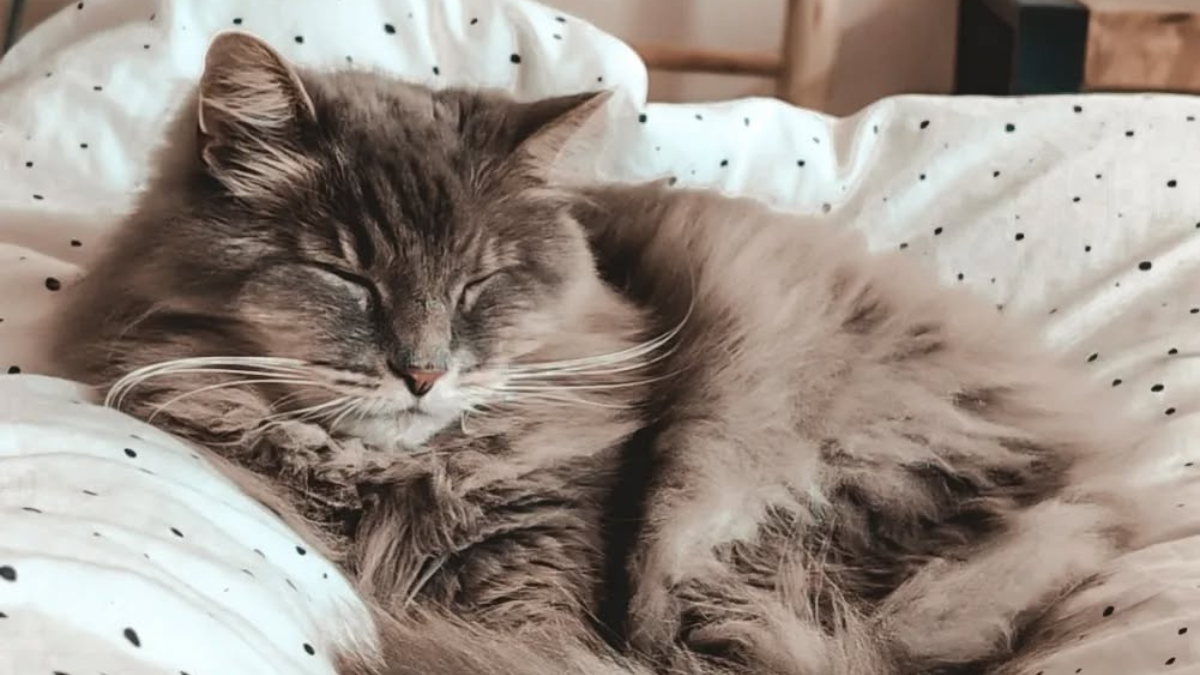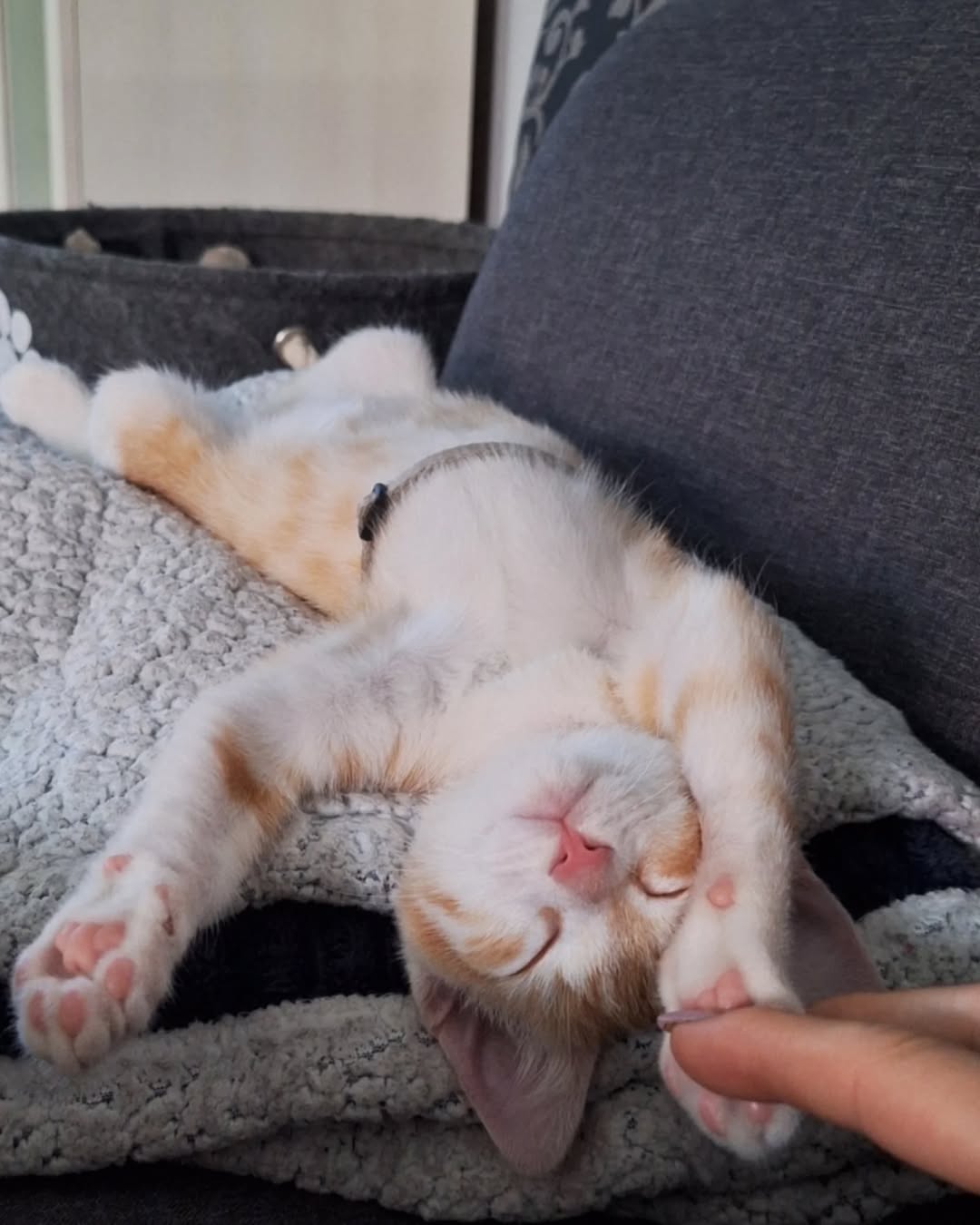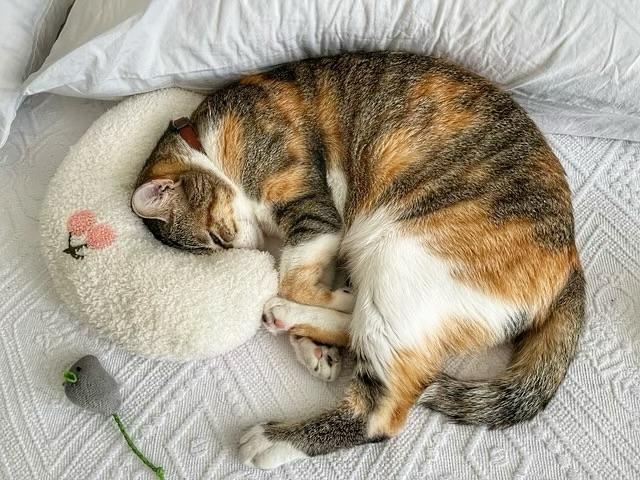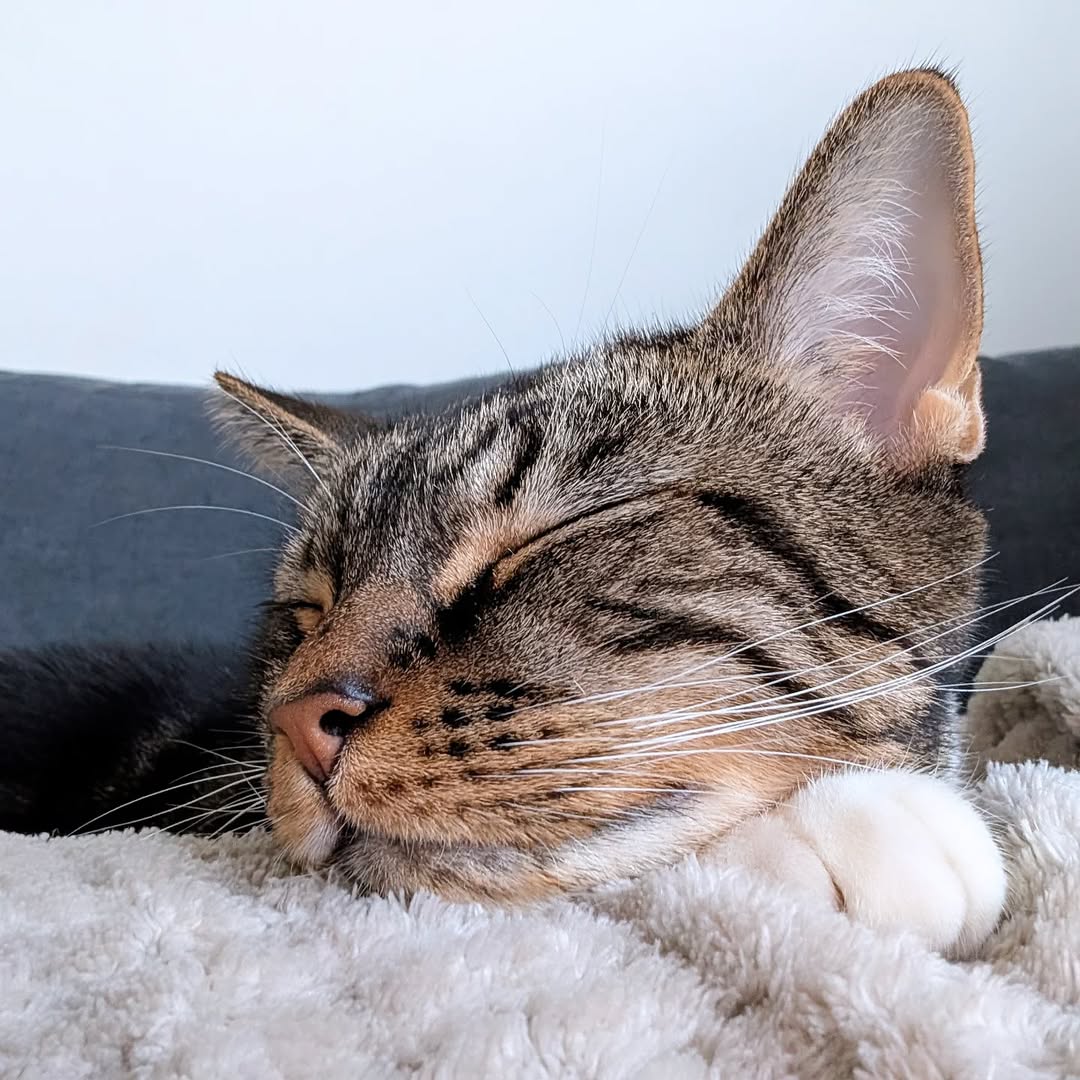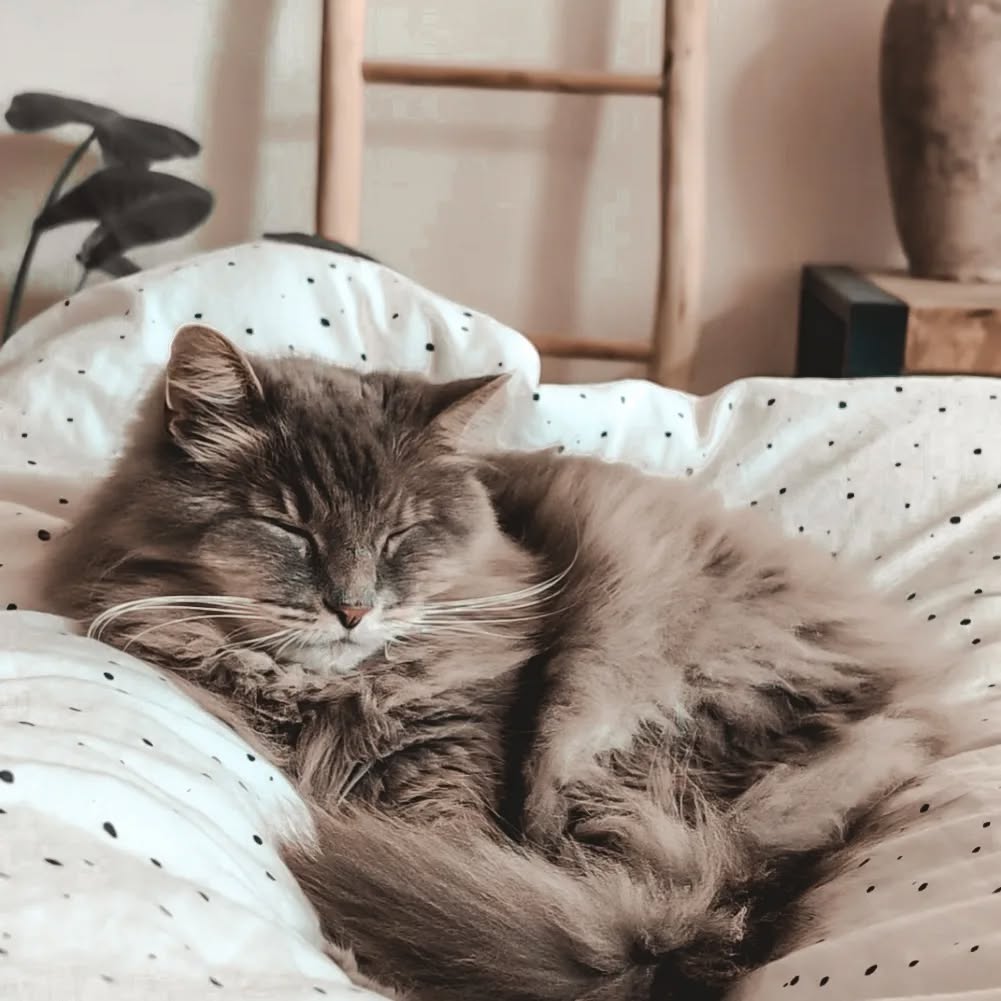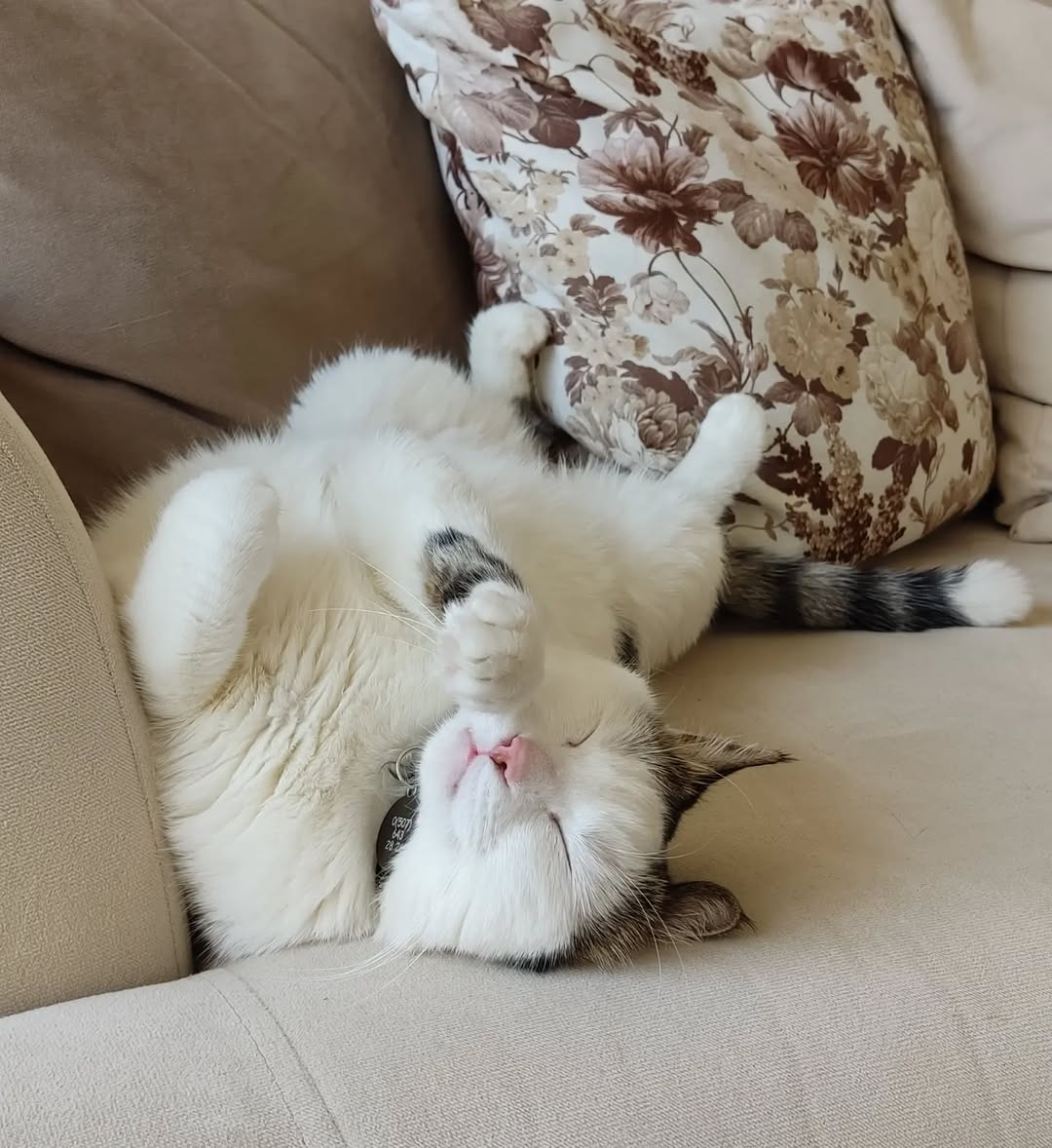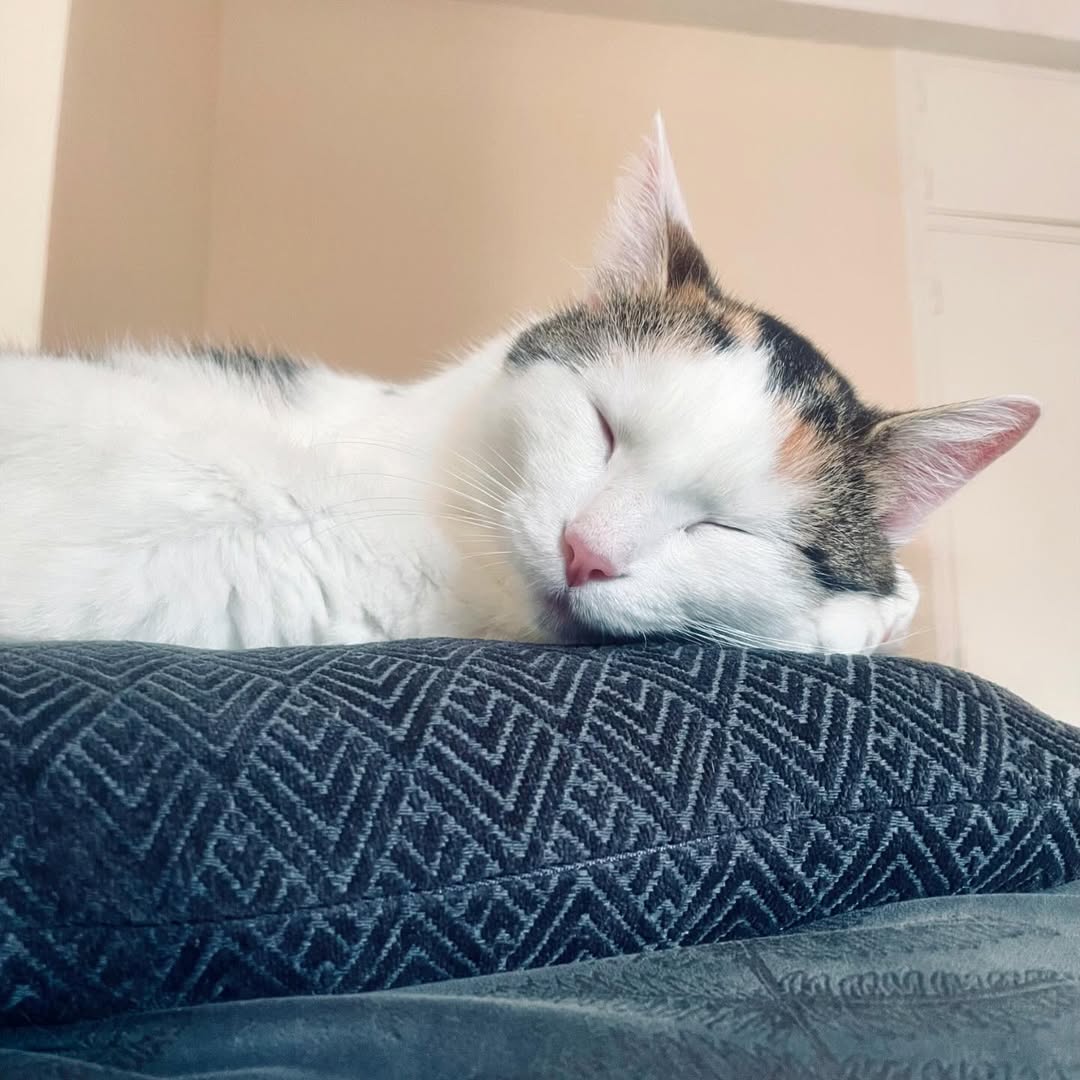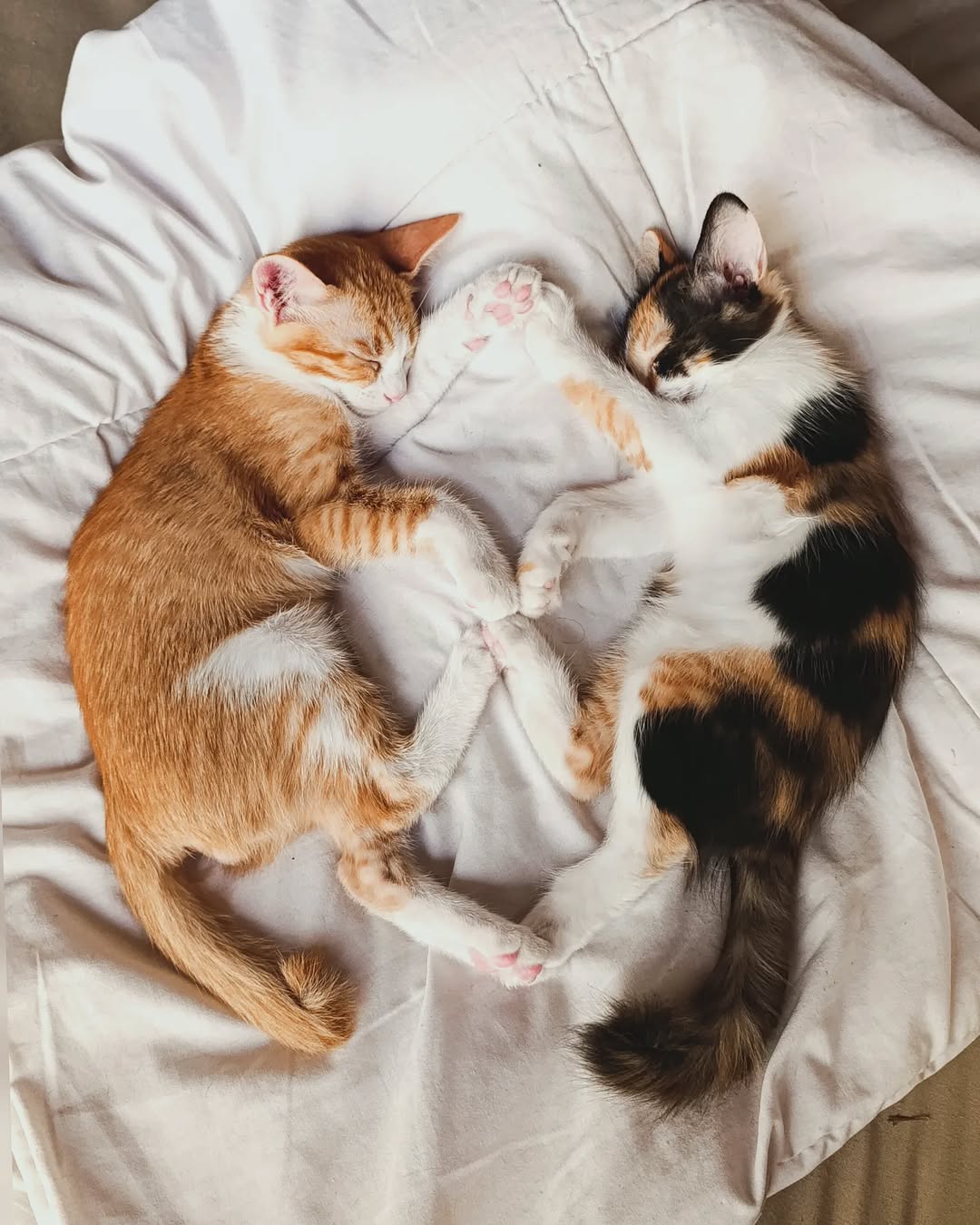📖 Table of Content:
Ah, cats. Masters of napping, snoozing, and outright dozing. If you’ve ever owned a cat, you’ve probably wondered how they manage to spend half (okay, more like two-thirds) of their lives sprawled out in an array of ridiculous positions.
Whether they’re curled up like a cinnamon roll, stretched into a furry pretzel, or commandeering your keyboard mid-email, one thing is certain: cats love their beauty sleep.
But why, exactly, do they sleep so much? Let’s dive into the feline slumber mystery with these eight fascinating reasons!
1. They’re Natural Predators (Even If They’re Just Hunting Socks)
In the wild, cats are apex predators—think lions, tigers, and your domestic fluff ball stalking a rogue dust bunny. Hunting requires intense bursts of energy, so their bodies are wired to rest and recharge. When they pounce, it’s all about precision and speed, which demands a lot of energy in short bursts.
Even though Mr. Whiskers’ most challenging prey might be the laser pointer or a dangling shoelace, his instinctive need to conserve energy remains intact.
So, those hours spent napping? They’re essentially part of your cat’s training regimen for being the ultimate stealth machine, even if the mission is as trivial as sneaking up on your toes.
2. Nightlife Enthusiasts
Cats are crepuscular, which is a fancy way of saying they’re most active at dawn and dusk. This trait stems from their wild ancestors, who found these twilight hours perfect for hunting when visibility was challenging for both prey and predators.
Your indoor cat might not have to fend off rival hunters, but that crepuscular rhythm still dictates their energy cycles. The result? They spend the bulk of their day in slumber mode, storing up energy for their pre-dawn zoomies and evening acrobatics.
Ever been woken up at 3 a.m. by the sound of your cat sprinting across the house like an Olympic sprinter? That’s their prime time, baby, and all that daytime napping ensures they’re ready to hit top speed when the mood strikes.
3. Kitten Dreams, Adult Realities
Kittens sleep up to 20 hours a day because their bodies are growing faster than a weed in summer. During sleep, their bodies release growth hormones essential for building strong bones, muscles, and brains.
Even as adults, cats hold on to this habit, although their sleep needs might decrease slightly. Adult cats might not need as much shut-eye as their younger counterparts, but the established pattern of frequent naps sticks with them.
Plus, sleep isn’t just about rest—it’s also when their minds process everything they’ve learned. So, whether it’s a kitten dreaming of their first pounce or an adult cat reminiscing about the treat they earned, sleep is a vital part of their lives.
4. Big Brains Need Big Breaks
Cats might not be solving algebra problems, but their brains are constantly working—processing scents, sounds, and movements in their environment.
This heightened state of awareness can be exhausting, even if they don’t show it. Sleep helps their brains reset and stay sharp, allowing them to remain the highly alert creatures we love.
Ever notice how a cat can go from dead asleep to pouncing on an imaginary foe in a split second? That’s their mental agility at work. Their nap times allow them to process and catalog all the stimuli they encounter throughout the day, ensuring they’re always one step ahead of that sneaky feather toy.
5. The Weather Dictates Their Naps
Rainy day vibes aren’t just for humans. Cats—being the royalty they are—enjoy snoozing more when it’s cold, dreary, or overly sunny. Basically, any weather is nap weather if you’re a cat.
When it’s chilly, they conserve body heat by curling into tight little balls, often seeking out warm spots like your lap or a sunlit patch on the floor. On hot days, they stretch out to cool off, but they’ll still sleep through the heat to avoid expending unnecessary energy.
They’re like little barometers that snooze instead of giving you a forecast, and their ability to adjust their nap schedules to the changing weather is a testament to their adaptability.
6. Their Food Comas Are Real
After a hearty meal, cats often retreat to their favorite snooze spot to digest in peace. This behavior mimics their wild ancestors, who would feast after a successful hunt and then rest to avoid becoming someone else’s dinner.
Digesting food takes energy, and a good nap helps their bodies focus on processing all those nutrients. Your indoor kitty might not have predators to worry about, but those post-dinner naps are non-negotiable.
Think of it as their version of Thanksgiving dinner—complete with a turkey-induced food coma, except theirs happens every day.
7. Stress? What Stress?
Cats use sleep as a coping mechanism. If they’re stressed, bored, or just feeling meh, they’ll curl up and let the world fade away.
This ability to nap through tough times is an evolutionary trait that helps them stay calm and composed. If your cat is napping more than usual, it might be their way of handling changes in their environment, like a new pet or noisy renovations.
However, it’s also possible they’re just enjoying their favorite pastime. After all, who wouldn’t want to snooze away their worries?
8. They’re Living the Dream
Let’s be honest: cats have it made. They don’t have jobs, bills, or chores. Their biggest concern is deciding whether to sleep on the couch, your bed, or the clean laundry.
Cats sleep so much simply because they can. And isn’t that the dream? They’ve mastered the art of leisure, reminding us to slow down and enjoy life’s simple pleasures.
When you see your cat snoozing in the sun or curling up on a soft blanket, remember that they’re not being lazy—they’re living their best life, one nap at a time.
